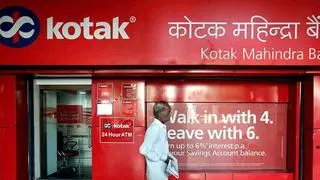In a bid to give a leg-up to the slowing economy, the Reserve Bank of India on Tuesday relaxed the end-use restrictions related to external commercial borrowings (ECBs), allowing corporates and non-banking finance companies (NBFCs) to raise ECBs for working capital and general corporate purposes.
Under the revised ECB policy, long-term overseas borrowing will enable NBFCs, especially housing finance companies, overcome asset-liability mismatches and liquidity stress that they are currently facing and shed their conservatism in lending. Corporates in manufacturing and infrastructure, which are classified as special mention account (SMA) 2 (where principal or interest payment is overdue between 61-90 days), or as non-performing assets, can take the ECB route for repayment of rupee loans availed domestically for capital expenditure under any one-time settlement with lenders. This may enable resolution of stressed assets.
So far, ECB proceeds could not be utilised for working capital purposes, general corporate purposes, and repayment of rupee loans except when the ECB is availed of from the foreign equity holder for a minimum average maturity period of five years. Further, on-lending for these activities out of ECB proceeds, was also prohibited.
ECBs are commercial loans raised by eligible resident entities from recognised lenders, except foreign branches/overseas subsidiaries of Indian banks.
Average maturity period
As per the relaxed ECB end-use provisions, the RBI has permitted ECBs with a minimum average maturity period of 10 years for working capital purposes and general corporate purposes. Borrowing by NBFCs for this maturity for on-lending for the above purposes is also permitted.
ECBs, with a minimum average maturity period of seven years, can be availed by eligible borrowers for repayment of rupee loans availed domestically for capital expenditure, as also by NBFCs for on-lending for the same purpose.
For repayment of rupee loans availed domestically for purposes other than capital expenditure and for on-lending by NBFCs for the same, the minimum average maturity period of the ECB is required to be 10 years.
The RBI said eligible corporate borrowers will be allowed to avail ECB for repayment of rupee loans availed domestically for capital expenditure in manufacturing and infrastructure sector if classified as SMA-2, or NPA, under any one-time settlement with lenders.
Lender banks are also permitted to sell, through assignment, such loans to eligible ECB lenders, except foreign branches/ overseas subsidiaries of Indian banks, provided the resultant ECB complies with all-in-cost, minimum average maturity period, and other relevant norms of the ECB framework.







Comments
Comments have to be in English, and in full sentences. They cannot be abusive or personal. Please abide by our community guidelines for posting your comments.
We have migrated to a new commenting platform. If you are already a registered user of TheHindu Businessline and logged in, you may continue to engage with our articles. If you do not have an account please register and login to post comments. Users can access their older comments by logging into their accounts on Vuukle.